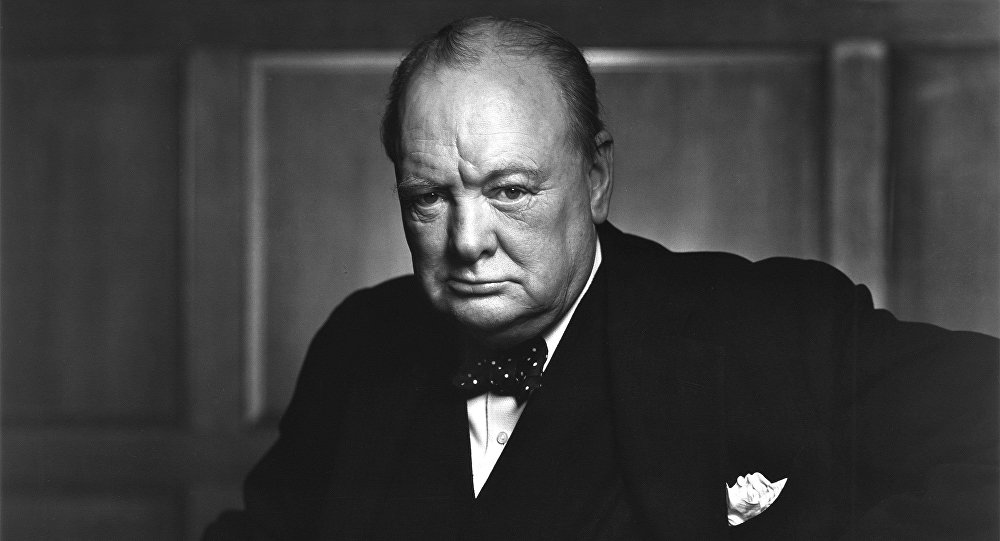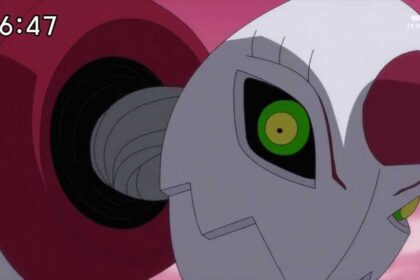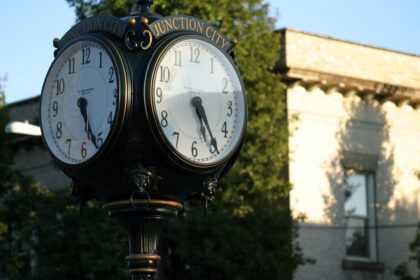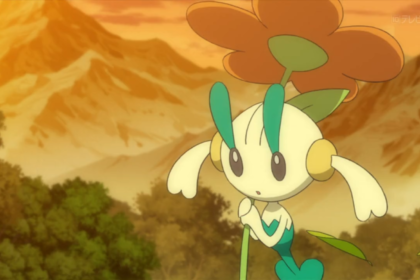Sir Winston Leonard Spencer-Churchill was a British politician, army officer and writer, who was Prime Minister of the United Kingdom from 1940 to 1945 and again from 1951 to 1955. As Prime Minister, Churchill led Britain to victory in the Second World War. Take a look below for 30 more awesome and interesting facts about Winston Churchill.
1. Ideologically an economic liberal and British imperialist, he was a member of the Liberal Party from 1904 to 1924 before rejoining the Conservative Party, which he led from 1940 to 1955.
2. Churchill represented five constituencies during his career as Member of Parliament.
3. Born in Oxfordshire to an aristocratic family, Churchill was a son of Lord Randolph Churchill and Jennie Jerome.
4. Joining the British Army, he saw action in British India, the Anglo-Sudan War, and the Second Boer War, gaining fame as a war correspondent and writing books about his campaigns.
5. In H.H. Asquith’s Liberal government, Churchill served as President of the Board of Trade, Home Secretary and First Lord of the Admiralty, championing prison reform and workers’ social security.
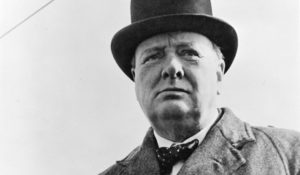
6. During the First World War, he oversaw the Gallipoli Campaign. After it proved a disaster, he resigned from government and served in the Royal Scots Fusiliers on the Western Front.
7. In 1917, he returned to government under David Lloyd George as Minister of Munitions, and was subsequently Secretary of State for War, Secretary of State for Air, then Secretary of State for the Colonies.
8. After two years out of Parliament, he served as Chancellor of the Exchequer in Stanley Baldwin’s Conservative government, returning the pound sterling in 1925 to the gold standard at its pre-war parity, a move widely seen as creation deflationary pressure on the U.K. economy.
9. At the outbreak of the Second World War, he was re-appointed First Lord of the Admiralty.
10. Following Prime Minister Neville Chamberlain’s resignation in 1940, Churchill replaced him.
11. Churchill oversaw British involvement in the Allied war effort, resulting in victory in 1945.
12. His wartime response to the 1943 Bengal famine, which claimed an estimated three million lives, has caused controversy, and he sanctioned the 1945 bombing of Dresden, which caused tens of thousands of civilian deaths and continues to be debated.
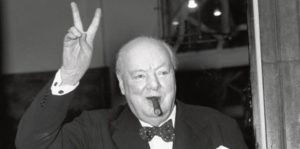
13. During Prohibition in the United States, Winston Churchill referred publicly to the Constitutional amendment banning alcohol as, “an affront to the whole history of mankind.”
14. Churchill, after being told that he couldn’t drink in front of the Saudi King due to the King’s religious beliefs, said, “my religion prescribed an absolute sacred rite smoking cigars and drinking alcohol before, after, and if need be during all meals and the intervals between them.”
15. His famous witticisms were planned weeks in advance by studying the issues and imaging all possible social interactions. He did this to combat his speech impediment.
16. During the applause following his famous “We Shall Fight on the Beaches” speech to the House of Commons in 1940, Churchill whispered to a colleague, “And we’ll fight them with the butt ends of broken beer bottles because that’s bloody well all we’ve got!”
17. He enjoyed bricklaying in his spare time and built several walls at his house at Chartwell.
18. The first known use of the term “OMG” was in a letter to Churchill 100 years ago.
19. Churchill drew up plans for a surprise attack against the then-allied Soviet Union. Dubbed “Operation Unthinkable,” the plan would have rearmed up to 100,000 former Nazi soldiers and kicked off World War III almost before World War II had ended.
20. Churchill and Gandhi were enemies. Churchill favored letting Gandhi die if he went on a hunger strike, and during the Bengal famine of 1943 responded to urgent requests to divert food supplies to India with a telegram asking, if food was so scarce, “why Gandhi hadn’t died yet.”
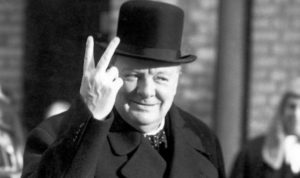
21. His bodyguard Walter H. Thompson saved Churchill’s life over 20 times, including from shrapnel during the Blitz, plots by the IRA, Indian nationalists, Arab nationalists, Nazi agents, Greek Communists and the deranged.
22. Lady Astor, the first female British MP, was constantly fighting with Churchill. During a debate, she declared that if married to him, she’d have poisoned his tea. Churchill responded, “Madam, if I was your husband, I would drink it.”
23. During World War II, Churchill required a pressurized chamber known as the Life Pod to fly due to his health. It included a phone, an ashtray and an air circulation system so that he could smoke.
24. When Churchill traveled by ship during World War II, he had a lifeboat mounted with a machine gun so that he could, “resist capture at all costs.”
25. In 1899, Churchill was held as a prisoner of war in South Africa as a newspaper correspondent, and after hearing that his release was unlikely, he made a 300 mile escape by jumping freight trains and walking.
26. Churchill took 60 bottles of alcohol with him when he set out for the Boer War.
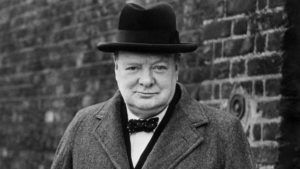
27. Both Churchill and King George VI had wanted to accompany the Allied Expeditionary Force on D-Day, and were only dissuaded by an Admiral who said he would not take responsibility for them.
28. Churchill was a low achiever at school, thanks mainly to his independent and rebellious spirit. His father believed him to be unsuited to a career in law or politics, and signed him up for the army.
29. He got little time and affection from his parents, and once remarked that he hardly ever spoke to his father. When his father died young, at the age of 45, the young Churchill, convinced that he too would die young, vowed that he would have to make his mark on the world as quickly as possible.
30. In 1895, he went to Cuba to observe the Spanish fight Cuban guerrillas in the Cuban War of Independence. He came under fire on his 21st birthday and was later awarded a medal by the Spanish.

